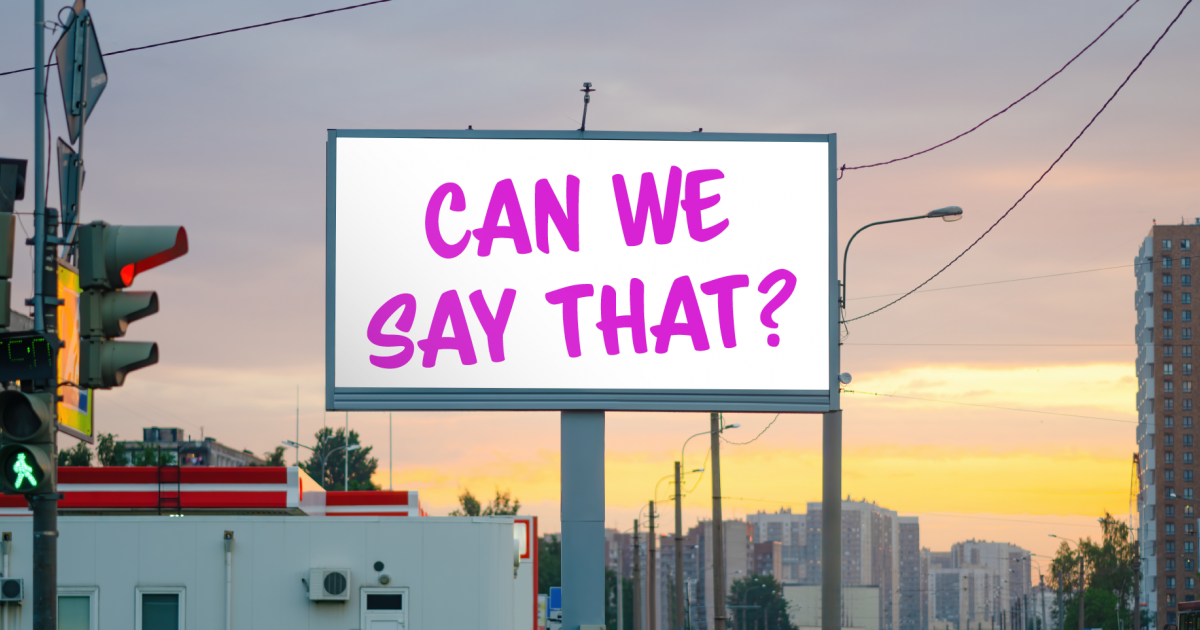
Qualified Sponsorship Payments: What is Advertising and What is Not?
Sometimes, after a local shop makes a donation, it seems harmless enough to put their name on a sign or to announce it to an audience during your booster’s main event. If you do it right, it isn’t advertising and everybody wins.
Parent Booster USA is back again answering your questions! In this post, we will take a quick look at what is and is not a qualified sponsorship payment—in other words, a tax-deductible donation from a business with the expectation of acknowledgement, that is not advertising. We also look at what is considered taxable advertising and what happens—and what to do—when you advertise.
The Basics
The IRS makes it clear ("Advertising or Qualified Sponsorship Payments?"): “a ‘qualified sponsorship payment’ (is) any payment made by any person engaged in a trade or business with respect to which there is no arrangement or expectation that such person will receive any substantial return benefit other than the use or acknowledgement of the name or logo (or product lines) of such person's trade or business in connection with the activities of the organization that receives such payment.”
A mouthful, we know! In layman's terms, this means receiving a donation from a business as a booster club or other nonprofit organization should only result in basic recognition (more on this later) of the business from your booster.
So, when do we cross the line into advertising? More importantly, should boosters avoid advertising?
Qualified Sponsorship Payments and Advertising Differences
In our blog, “Fundraising Do’s and Don’ts,” we cover working with businesses. Let's add a few things:
Acceptable, tax-deductible recognition from businesses is called a qualified sponsorship payment. The guidelines by the IRS are as follows:
- Sponsor logos and slogans cannot describe or compare products, services, facilities, or companies
- Sponsor location/address and telephone numbers are allowed
- Value-neutral descriptions, including displays or visual depictions of products or services are allowed
- Sponsor brand or trade names and product or service listings are allowed
The IRS frowns upon the following and considers them advertising:
- Qualitative or comparative language (e.g., "best pancakes in town")
- Pricing information
- Endorsement from a business (e.g., shoes, uniforms, etc.)
- Inducement to purchase: a business can give the product away for free, but cannot say it is to have the person to buy otherwise
- Donations based on the number of attendees at an event or other factors indicating public exposure
Let’s Say You Advertise
Let’s clear this up: nonprofits legally can advertise. It is not out of the question. However, there are corporate taxes on advertising and additional paperwork. Thus, organizations engaging in advertising must file a 990T (via the IRS website), which PBUSA is glad to help with.
If you don’t declare advertising on your taxes or file the proper 990, there are oftentimes associated penalties. We have had members who needed to square up with the IRS years after the IRS found out about advertising. Also, back taxes often accrue interest and additional penalties.
The IRS requires organizations to declare any unrelated business taxable income. This term, unrelated business taxable income (UBTI on the 990T), means it does not involve your organization’s exempt purpose (from IRS Publication 598). Make sure if you advertise you ask about how to file the appropriate paperwork.
Working with Businesses
We at Parent Booster USA are all about great, lasting relationships. If you need additional help defining donations made by a business to your booster, whether or not a donation is a qualified sponsorship payment, or squaring up for advertising expenses, please feel free to reach out. We are here to help!
The only organization of its kind in the US, Parent Booster USA is about helping school support organizations (parent teacher organizations, high school booster clubs and other school fundraising groups) handle the state and federal government paperwork required of fundraising groups.
Founded in 2004 by an attorney skilled in nonprofit and tax law, Parent Booster USA has more than 6,000 member organizations in 50 states and DC with a 95% annual renewal rate. We provide peace of mind for parent volunteers, school administrators and school district leadership.